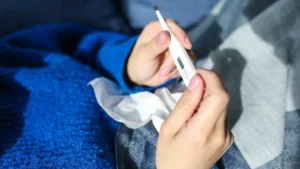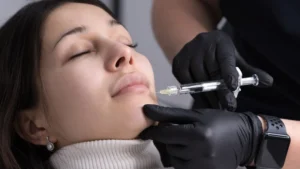Nose bleeding after hitting head can start because the impact can cause blood vessels in the nose to break, resulting in bleeding. Additionally, the force of the impact can also cause the nasal passages to swell, which can also contribute to nosebleeds. In some cases, a head injury can also cause a nasal fracture, which can also lead to bleeding.
In this article, we will explore all aspects of nose bleeding after hitting head. It’s important to note that if you experience a severe or persistent nosebleed after hitting your head, you should seek medical attention as soon as possible.
Causes of Nosebleeds After Head Injury
- Trauma to the nose: A direct blow to the nose can cause bleeding in the nasal passages.
- Fractured nose: A broken nose can cause bleeding in the nasal passages.
- Blood vessels: Head injury can cause bleeding in the blood vessels in the nose.
- Sinus injury: Head injury can cause bleeding in the sinuses, which can lead to nosebleeds.
- Blood clotting disorders: A head injury can cause bleeding disorders that can lead to nosebleeds.
- Medications: Certain medications, such as blood thinners, can increase the risk of nosebleeds after a head injury.
It’s important to note that if a person has a head injury, and a nosebleed is accompanied by other symptoms such as severe headache, confusion, double vision, or neck pain, they should seek medical attention immediately, as it could be an indication of serious injuries such as a skull fracture or brain injury.
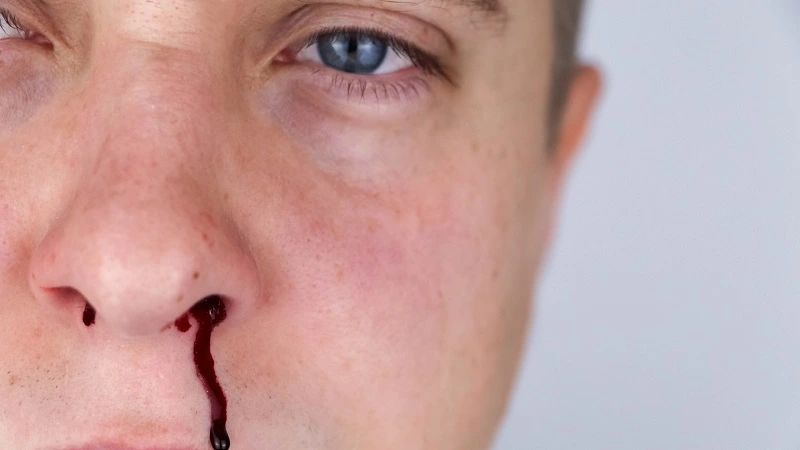
Risk Factors for Nosebleeds After Head Injury
There are several risk factors that can increase the likelihood of experiencing nosebleeds following a head injury. These include:
- Fractures of the nose or facial bones: If the head injury results in a fracture of the nose or any of the facial bones, it can damage the blood vessels in the nose, leading to nosebleeds.
- Damage to the blood vessels: Head injuries can also cause damage to the blood vessels in the nose, which can lead to nosebleeds.
- Bleeding disorders: Individuals with bleeding disorders, such as hemophilia, may be at increased risk for nosebleeds following a head injury as their blood does not clot properly.
- High blood pressure: High blood pressure can increase the risk of nosebleeds as it can cause blood vessels in the nose to become more fragile.
- Medications: Certain medications, such as blood thinners and anti-inflammatory drugs, can increase the risk of nosebleeds.
- Age: Older adults are more likely to experience nosebleeds following a head injury as the blood vessels in their nose may be more fragile.
- Climate: Dry or cold climates can dry the nasal passages and cause irritation and bleeding.
It’s important to note that if you have a head injury, you should seek medical attention immediately, as nosebleeds can be a sign of a more serious injury. A doctor can evaluate your condition and determine the best course of treatment.
Treatment Options for Nosebleeds After Head Injury
Treatment options for nosebleeds following a head injury may include:
- Pinching the nose: Pinching the soft part of the nose closed, leaning forward, and breathing through the mouth can help to stop the bleeding. This should be done for at least 10-15 minutes.
- Cold compresses: Applying a cold compress, such as a bag of frozen peas, to the bridge of the nose can help to constrict blood vessels and reduce bleeding.
- Nasal decongestant sprays: Over-the-counter nasal decongestant sprays can help to constrict blood vessels in the nose and reduce bleeding.
- Topical ointments: Applying a small amount of petroleum-based ointment, such as Vaseline, to the inside of the nose can help to moisturize the nasal passages and reduce irritation.
- Cauterization: In some cases, a doctor may use a cauterizing agent, such as silver nitrate, to seal off the blood vessels in the nose that are bleeding.
- Surgery: In severe cases, surgery may be required to repair fractures or damage to the blood vessels in the nose.
- Medications: In some cases, a doctor may prescribe medications to help stop bleeding and prevent infection, such as antibiotics.
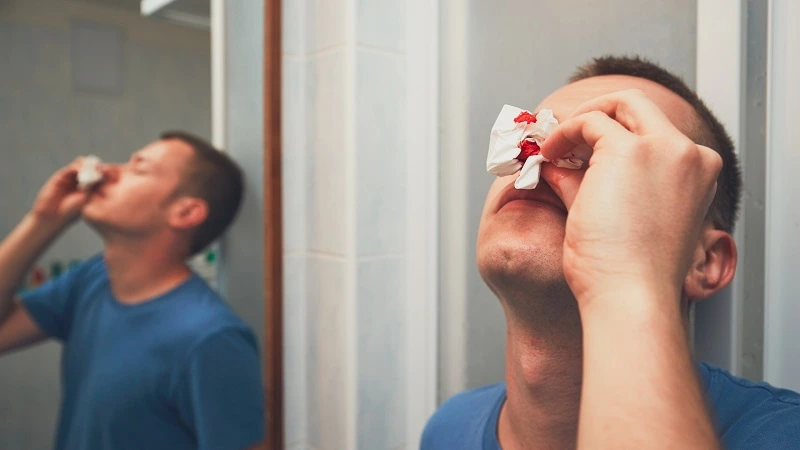
Prevention of Nosebleeds After Head Injury
There are several measures that can be taken to prevent nosebleeds following a head injury:
- Wear protective gear: Wearing protective gear, such as helmets, while participating in activities that carry a risk of head injury can help to reduce the risk of nosebleeds.
- Avoid nose picking: Picking the nose can irritate the blood vessels in the nose and increase the risk of nosebleeds.
- Keep the nasal passages moist: Dry nasal passages can lead to nosebleeds. Keeping the nasal passages moist by using a humidifier, saline nasal sprays or nasal ointments can help to prevent nosebleeds.
- Avoid exposure to dry or cold climates: Dry or cold climates can dry the nasal passages and cause irritation and bleeding.
- Avoid medications that can increase the risk of nosebleeds: Medications such as blood thinners and anti-inflammatory drugs can increase the risk of nosebleeds. If you take any of these medications, talk to your doctor about the risk of nosebleeds and alternative treatment options.
- Manage underlying medical conditions: If you have a medical condition that increases the risk of nosebleeds, such as high blood pressure or a bleeding disorder, it’s important to manage these conditions to prevent nosebleeds.
- Be Careful: Be careful while engaging in activities that may cause head injuries, such as sports and other physical activities, and be cautious around potentially hazardous environments.
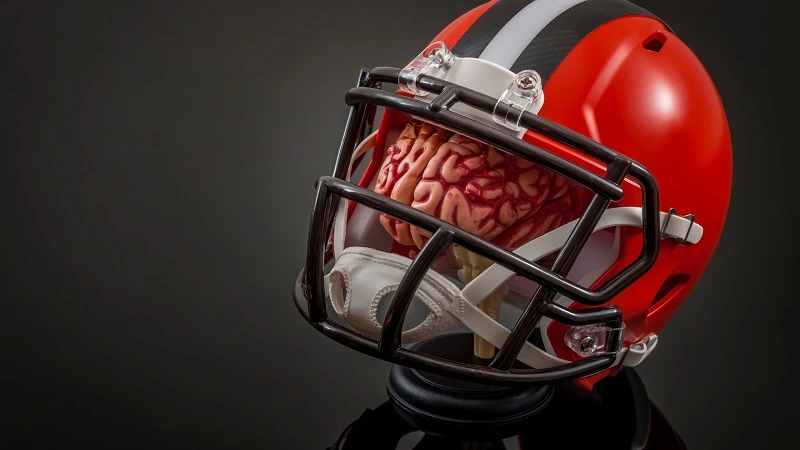
Conclusion
In conclusion, nose bleeding after hitting head can be caused by fractures of the nose or facial bones, damage to the blood vessels, bleeding disorders, high blood pressure, medications, age, and climate. To prevent nosebleeds, it is important to wear protective gear, avoid nose picking, keep the nasal passages moist, avoid exposure to dry or cold climates, avoid medications that can increase the risk of nosebleeds, manage underlying medical conditions and be careful while engaging in activities that may cause a head injury. If you have a head injury, it is important to seek medical attention immediately to prevent any further complications. A doctor can evaluate your condition and determine the best course of treatment and prevention.

